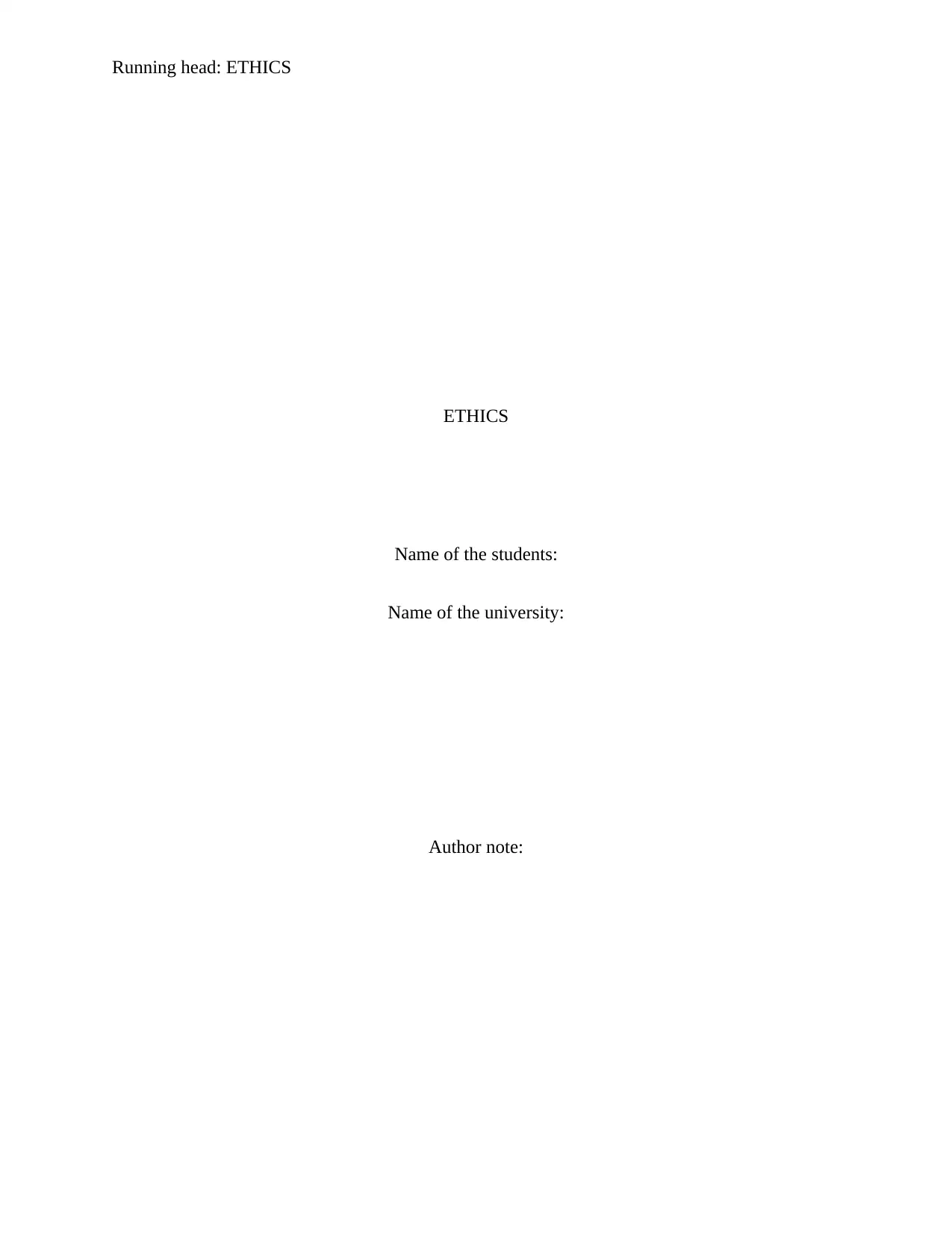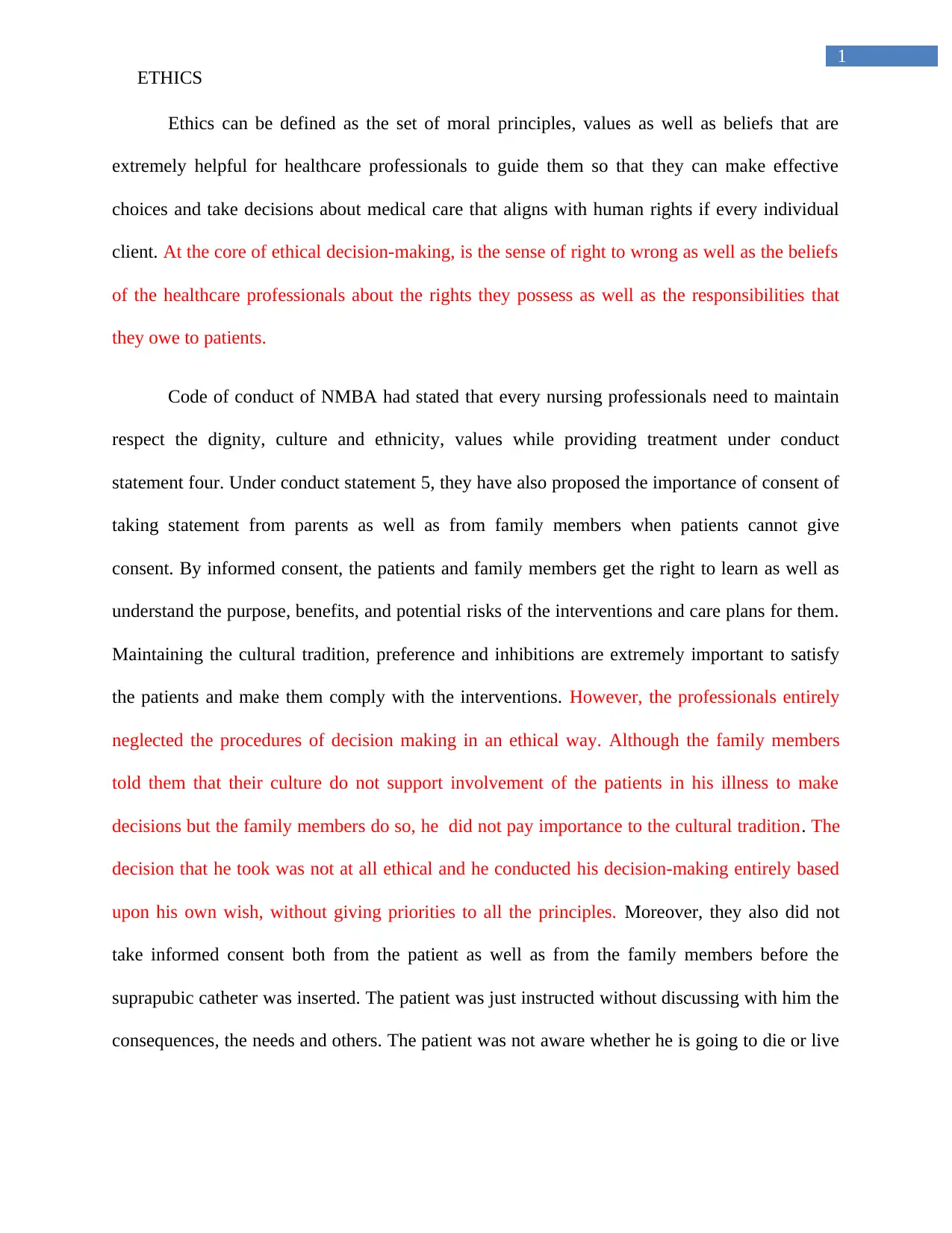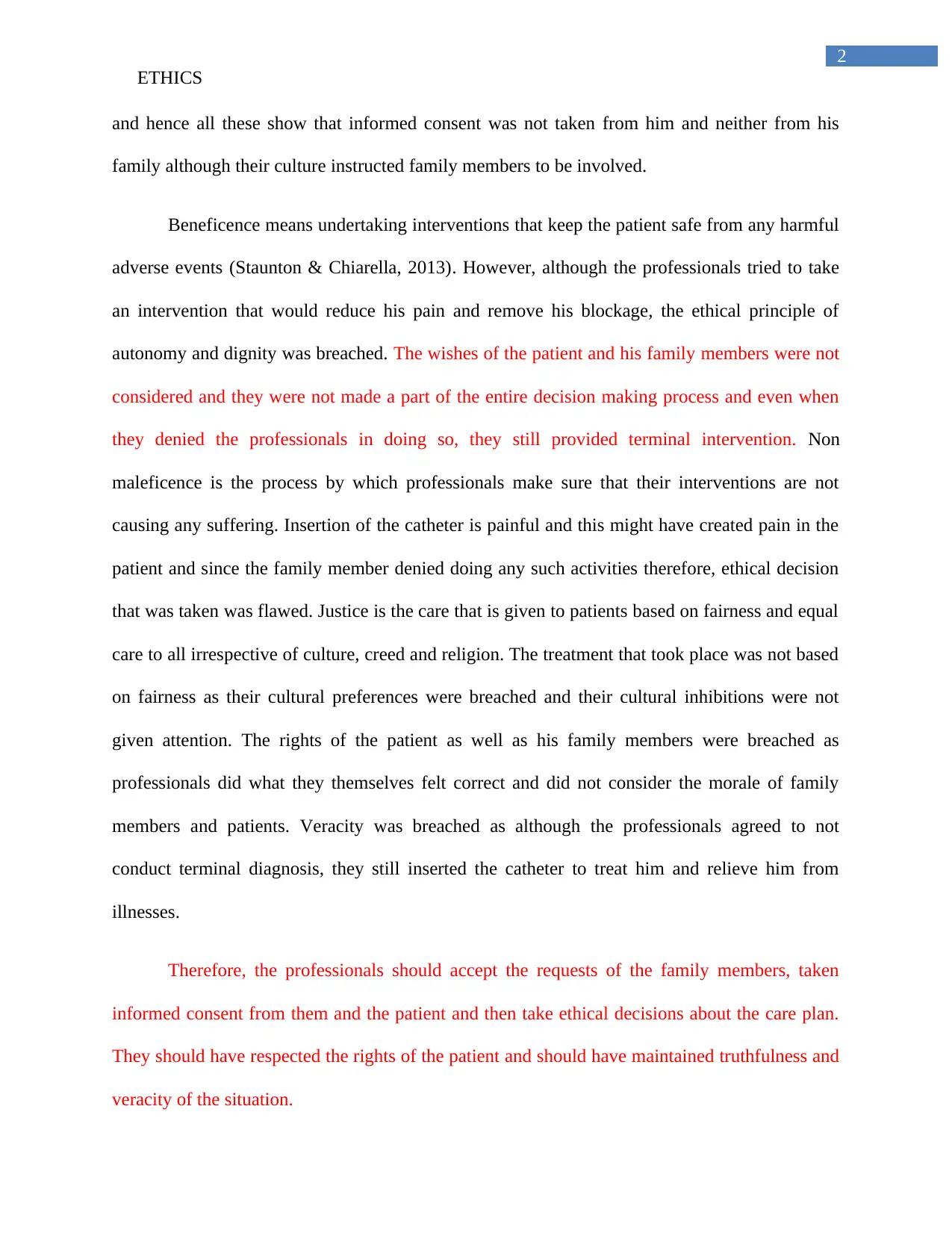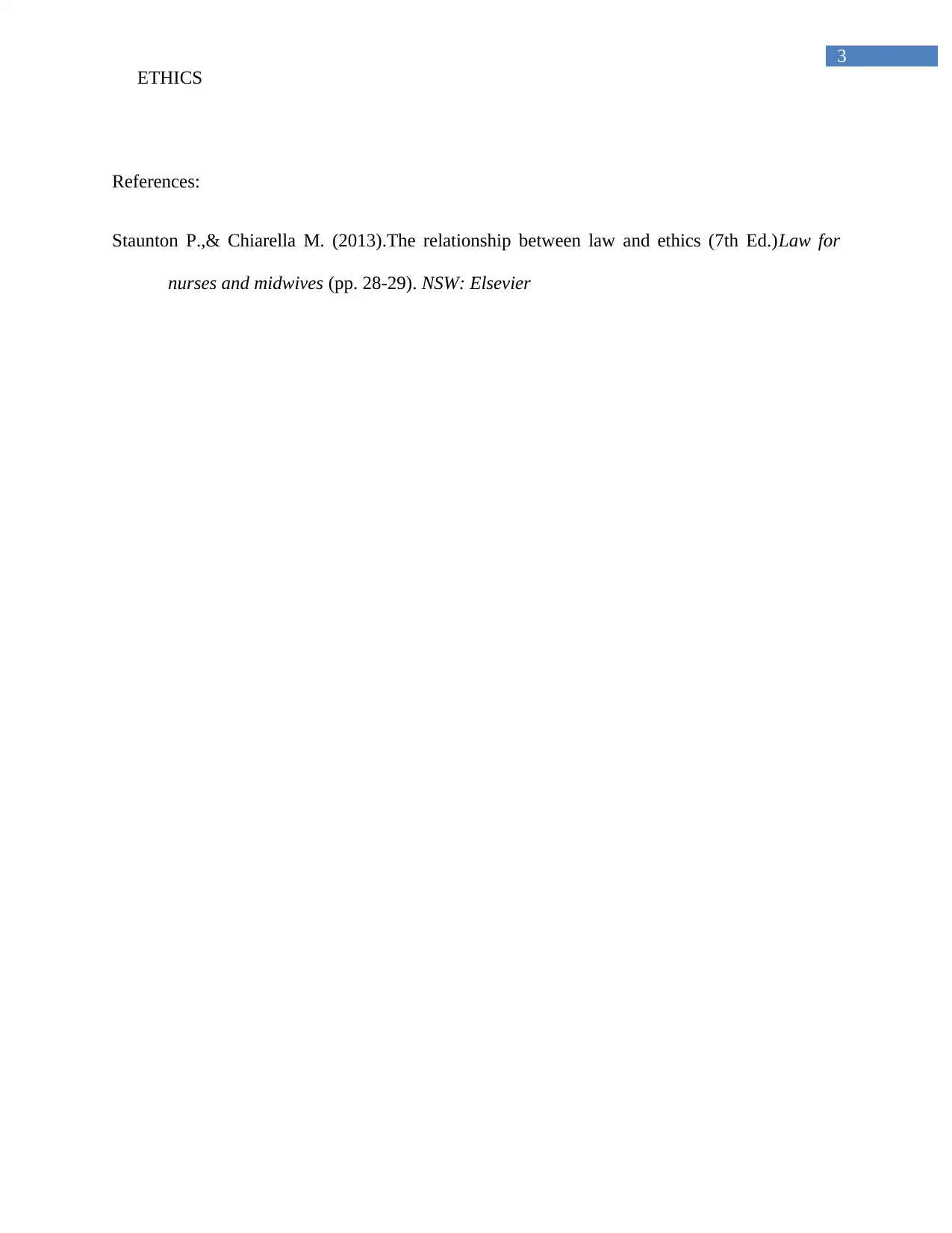Case Study: Ethical Considerations in Nursing Practice - ETHICS 1
VerifiedAdded on 2021/05/31
|4
|744
|31
Case Study
AI Summary
This case study examines an ethical dilemma in nursing practice, focusing on a scenario where healthcare professionals made decisions that conflicted with the patient's and family's cultural preferences and the principles of informed consent. The analysis highlights breaches of ethical principles, including autonomy, beneficence, non-maleficence, justice, and veracity. The professionals disregarded the family's wishes and cultural traditions, proceeded with interventions without proper consent, and failed to prioritize the patient's and family's involvement in the decision-making process. The assignment references the NMBA code of conduct and emphasizes the importance of respecting patient rights, maintaining truthfulness, and obtaining informed consent. The author suggests that the professionals should have respected the family's requests, obtained informed consent, and made ethical decisions aligned with the patient's and family's values and cultural beliefs. This assignment provides a comprehensive analysis of ethical issues and offers insights into best practices in healthcare decision-making.
1 out of 4











![[object Object]](/_next/static/media/star-bottom.7253800d.svg)